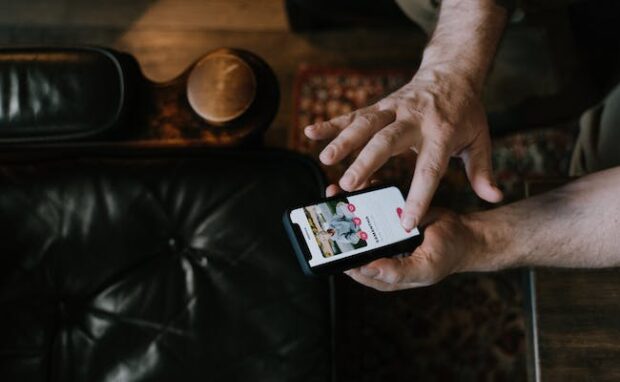Love: study reveals its mystery
A study from the Australian National University, the University of South Australia, and the University of Canberra explores how and why “love is blind.” In other words, their researchers are exploring the brain processes that cause us to behave differently under its influence. Initial results discovered the object of our affection becomes the center of our lives.
The early findings seem obvious, especially if you’ve ever felt being in love. However, we still lack enough information on how this emotion impacts our brains and changes our behaviors. Fortunately, Aussie researchers are conducting the first-ever study to understand love’s impact on our minds.
This article will discuss what the researchers have learned about love’s effects on the human brain. Later, I will explain how technology is transforming the dating scene.
How does love make us ‘blind’?

The study found that our brains have a unique reaction to being in love. “It makes the object of our affections the center of our lives,” the University of South Australia said.
Researchers from various Australian universities surveyed 1,556 young adults who said they were “in love.” The questions focused on their emotional reaction to their partners, their behavior around them, and how they focus on their loved ones.
As mentioned, our brains turn our partners into the centers of our lives. Also, ANU lead researcher Adam Bode elaborated on the processes that cause romantic love.
“We actually know very little about the evolution of romantic love,” Bode says. As a result, every finding that tells us about romantic love’s evolution is an important piece of the puzzle that’s just been started.”
You may also like: NASA explains fire experiments
“It is thought that romantic love first emerged some five million years ago after we split from our ancestors, the great apes. We know the ancient Greeks philosophized about it a lot, recognizing it both as an amazing as well as traumatic experience. The oldest poem ever to be recovered was, in fact, a love poem dated to around 2000 BC.”
UniSA Adjunct Associate Professor Dr. Phil Kavanagh says the study shows romantic love affects behavior and emotion. “We know the role that oxytocin plays in romantic love because we get waves of it circulating throughout our nervous system and bloodstream when we interact with loved ones,” Dr. Kavanagh states.
“The way that loved ones take on special importance, however, is due to oxytocin combining with dopamine, a chemical that our brain releases during romantic love. Essentially, love activates pathways in the brain associated with positive feelings,” he added.
How is tech changing how we find love?

Modern men are using AI chatbots to find matches on dating apps. Kristen Ruby, a public relations executive from Westchester County, explained the trend last year.
Ruby received a text message from a man she’d known for roughly two years. However, his message didn’t sound like him. Here’s a part of that conversation:
“I was surprised and hurt to hear you refer to me as a narcissist … I would appreciate it if you could share with me what behaviors or actions you have observed that led you to that conclusion.”
Later, she discovered that the guy used an AI bot to compose the text. “What was so scary about it was that the message that has [emotion] is the one that’s going to be more convincing or compelling to a woman on the other end of it,” Ruby told The New York Post.
Some men delegate more online dating tasks to AI chatbots, luring unsuspecting women. A Reddit thread debated the ethics of men using AI personas to score dates. One of the now-deleted posts said:
You may also like: Acoustic Touch may help blind people see again
“Dating apps have always favored women, so I decided to tip the scales … I fought back by building an AI-powered bot that could do the swiping and chatting for me.”
In response, other Redditors refused the notion. One wrote, “People, potential dating partners or not, are not statistics. They’re very real people, who I assume are not aware they are actually talking to a robot.”
Some doubted the AI dating program was real. Yet, a spokesperson for CupidBot told The New York Post one of its engineers posted the Reddit thread. The representative added the software earned the man 13 dates in one month.
Conclusion
Australian researchers are conducting the world’s first research into romantic love’s impact on the human mind. Initial results reveal it impacts our behaviors and emotions simultaneously.
The scientists are executing the next step of their study. They are investigating the differences between men and women in their approach to love.
Then, they will conduct a global survey to identify the four different romantic lover types. Learn more about it in the Behavioral Sciences journal. Also, check out more digital trends at Inquirer Tech.